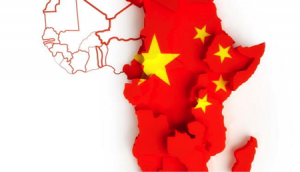 Whenever we mention to people that we at Pinchina Consulting are concentrating our efforts on China’s growing role in Latin America and the Caribbean, the first thing we almost always hear is, “Well, China’s in Africa!” Which is true. The historical relationship between China and Africa dates back to the 1960s and 1980s and today, 46 out of 53 African countries have diplomatic ties with China. Not surprisingly, there are many similarities between China’s involvement in the Latin American region and Africa. Given this, exactly what are China’s interests in Africa?
Whenever we mention to people that we at Pinchina Consulting are concentrating our efforts on China’s growing role in Latin America and the Caribbean, the first thing we almost always hear is, “Well, China’s in Africa!” Which is true. The historical relationship between China and Africa dates back to the 1960s and 1980s and today, 46 out of 53 African countries have diplomatic ties with China. Not surprisingly, there are many similarities between China’s involvement in the Latin American region and Africa. Given this, exactly what are China’s interests in Africa?
China’s early interactions with the continent was centered on building solidarity with other developing countries to advance the diplomacy of The People’s Republic of China and while countering support for Taiwan, the Republic of China, as the official representative of China in the United Nations. To advance this goal, China was instrumental in providing aid to African socialist regimes, supporting anti-colonial insurgencies in South Africa. The People’s Republic eventually replaced Taiwan in 1971 with the support and recognition of many African nations.
This is much like China’s rationale for engaging many Latin American countries and more specifically the Caribbean region ones where 12 of the 23 countries in the world that acknowledge Taiwan are located (Paraguay is the only South American country with ties to Taiwan and Costa Rica is the only Central American country with an allegiance to China).
The resurgence of China’s presence in Africa today, however, is largely precipitated by China’s drive to satisfy its growing economy. China is undoubtedly the world’s fastest growing energy consumer and the continent is one of the regions China depends on for critical supplies of oil, minerals, and other natural resources. In fact, China is currently the largest trading partner on the African continent. By providing aid in the form of loans, grants and infrastructure, China is able to secure its source of supply by making sure that the roads, ports and airports needed to access and transport goods are in place. Again, not that different from China’s motivations with South American countries in particular that also have large quantities of natural resources.
Developing a coordinated African strategy in terms of China’s involvement has proven difficult for many reasons. For one, the presence of Chinese trade in Africa is composed of a mixed group of private investors, state agencies and other hybrid actors; thus, the relationship is not as clear and straightforward as it could be. Furthermore, each country in Africa has its own specific set of engagements with China.
Ultimately, whether or not China’s involvement in African countries is viewed as good or bad or whether a regional response emerges, it remains important for stakeholders in these countries to consider how they might better leverage their partnerships with China in a manner that positions them to gain more than they stand to lose.


About The Author: Tendo Sekiwala
More posts by Tendo Sekiwala